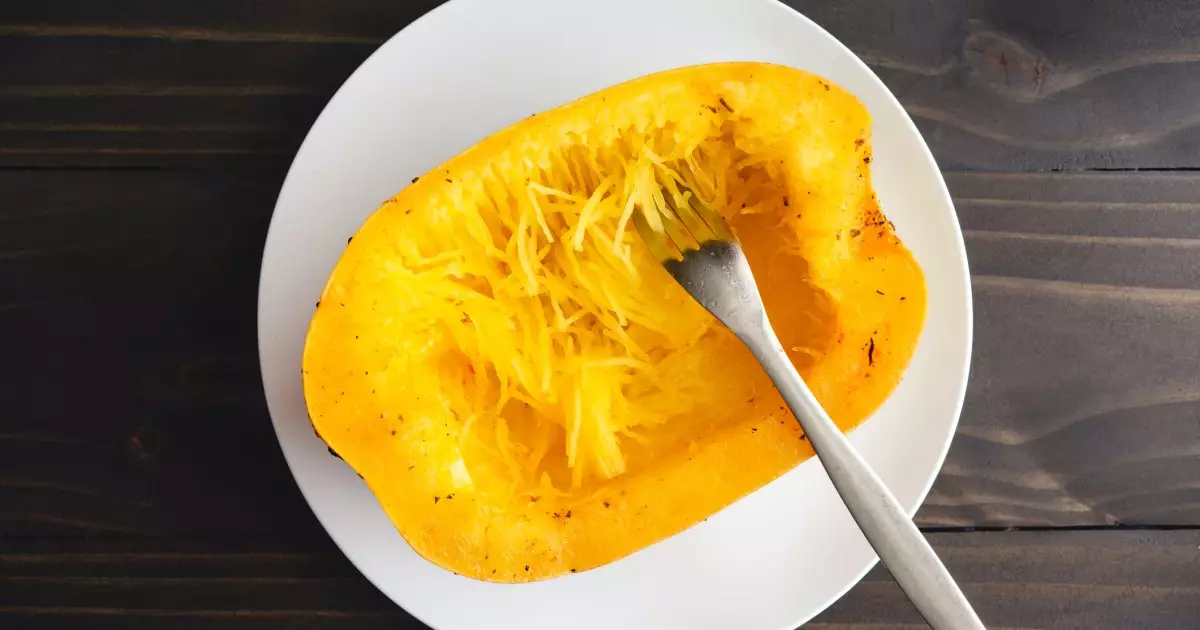When we think of delicious vegetables, spaghetti squash often tops the list—not only for its unique texture that mimics pasta but also for its nutritional value. It’s a wonder of nature that combines the hearty feel of pasta with the benefits of a vegetable. The big question pet owners grapple with is whether this unique squash is safe and beneficial for our beloved dogs. The exciting news is that, with the right preparation, spaghetti squash can be a delightful and nutritious addition to your pet’s diet.
Nutrition-Packed Goodness
Spaghetti squash isn’t just fun to eat; it’s also remarkable for its nutritional composition. This vibrant vegetable is packed with essential vitamins and minerals that can boost your dog’s health. One of its standout features is its high fiber content—about two grams per cup—which can significantly aid your dog’s digestive system. Just as humans benefit from fiber, dogs also require it for stronger gut health and regular bowel movements. If your furry friend has been experiencing digestive issues or occasional constipation, integrating fiber-rich foods like spaghetti squash can provide some much-needed relief.
Moreover, spaghetti squash shines in its vitamin profile. Particularly noteworthy is its abundance of vitamin B6, known for its contributions to a robust immune system and its role in metabolic processes. Additionally, spaghetti squash is a treasure trove of beta carotene. With about 90 micrograms packed into each cup, it surpasses even sweet potatoes in nutritional value. Beta carotene is essential for healthy vision and maintaining a strong immune response.
Preparation is Key
While spaghetti squash can be beneficial, the method of preparation is crucial when considering it for your dog. Unlike many vegetables, raw squash can be tough on canine digestive systems, causing unnecessary discomfort. To serve this wonderful veggie to your pup, the squash must be cooked—avoid keeping the skin and seeds intact, as these can lead to intestinal obstructions. The best way to prepare it is remarkably simple: just slice the squash in half, scoop out the seeds, and bake it in the oven until it is fork-tender. The resulting strands, reminiscent of spaghetti, can then be served as a nutritious treat or mixed with their regular food.
It’s important to maintain a safe environment when offering your dog any new dish. Avoid adding harmful ingredients—garlic and onions, in particular, are toxic to dogs. These ingredients often accompany delicious spaghetti squash recipes in human cooking, especially in Italian dishes. However, when sharing the joy of this vegetable with your pet, ensure they receive only the plain, cooked strands.
The Joy of Sharing
Many pet owners find joy in sharing meals with their pets, connecting over every flavorful bite. When preparing your festive meals that might use spaghetti squash, consider setting aside a portion for your dog. Instead of giving them the leftover scraps sprinkled with toxic ingredients, your pet can enjoy their own special serving, free from harmful additives but packed with nutrients.
Adding a little enthusiastically made squash into their dish can elevate their dining experience and introduce them to new flavors. The excitement in their eyes will make the preparation worthwhile.
The Bottom Line: Care and Consideration
Integrating new foods into your dog’s diet is an admirable way to make mealtime more interesting, and spaghetti squash is a superb option that supports overall health when prepared correctly. Always consider your dog’s unique dietary needs, and consult with a veterinarian before making changes. With the right approach, spaghetti squash can be a wondrous addition to your canine companion’s diet, enriching their meals and supporting their health. Choose wisely, prepare safely, and watch your dog’s tail wag in delight as you serve up this scrumptious and nutritious vegetable treat!

